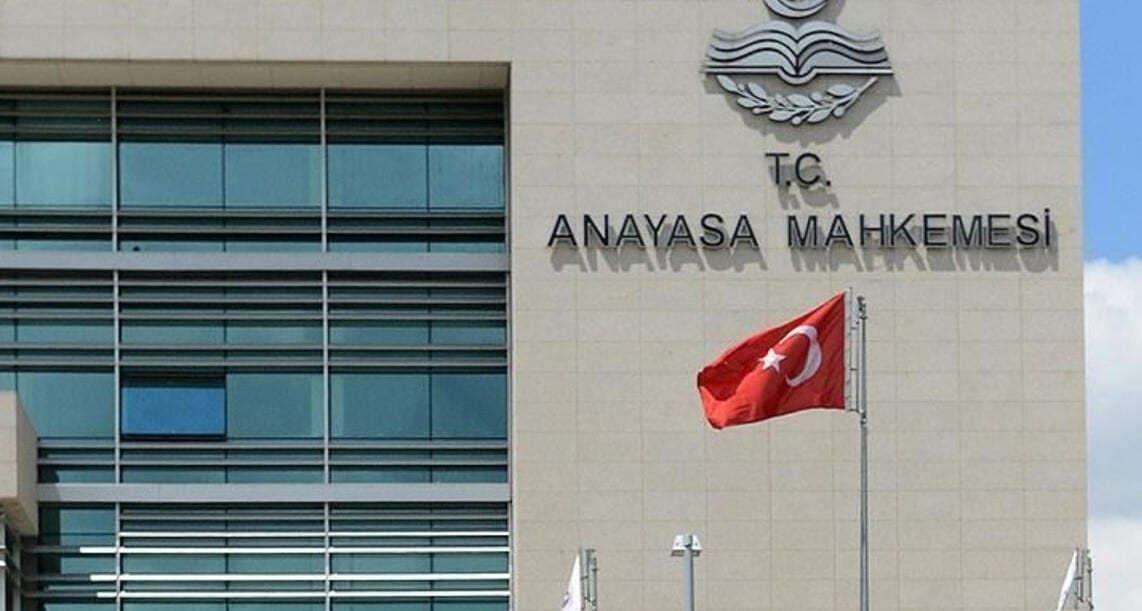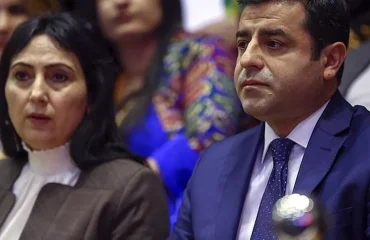

Istanbul 14th High Criminal Court rejected on Oct. 13 the Constitutional Court’s decision that journalist and politician Enis Berberoğlu should be retried in a case that resulted in the dropping of his post as a lawmaker. Doing so, the court has declared that it will not obey the Constitutional Court but the Court of Cassation, which has previously upheld its decision. Thus, the ruling of the Constitutional Court, which is Turkey’s supreme court has been violated, as its sanction power has been taken because the sanction power of the Constitutional Court holds its power as long as it is respected by the judiciary and political power as the highest decision-making body.
However, Article 153 of the Constitution states that the Constitutional Court decisions are binding for “legislative, executive, judicial bodies, administrative authorities” and everyone. The mechanism that would detect that the Istanbul court’s decision is against the Constitution has also been destroyed. Because, Justice Minister Abdülhamit Gül, who heads the Council of Judges and Prosecutors (HSK), did not take a stand supporting the Constitutional Court in the debate on the Istanbul Court decision.
Main opposition Republican People’s Party (CHP) leader Kemal Kılıçdaroğlu said at the General Assembly of parliament that the decision taken against Berberoğlu pointed to a great “decay” and warned that this could lead to “chaos”. Kılıçdaroğlu held a “March of Justice,” walking from Ankara to Istanbul to protest Berberoğlu’s arrest in 2017.
The Berberoğlu case, now the Sözcü newspaper
Let us first recall the Berberoğlu case. Berberoğlu was sentenced to 25 years in prison on the grounds that he gave information to journalist Can Dündar about the incident of stopping the National Intelligence Organization (MİT) trucks going to Syria in 2014. A higher court of appeal reversed the verdict and reduced the sentence to 5 years and 10 months, with the Supreme Court upholding it. However, while the file was pending at the Constitutional Court, Berberoğlu’s tenure as a deputy was dropped in Parliament with the votes by the ruling Justice and Development Party (AKP) and its election partner Nationalist Movement Party (MHP). This was followed by the Constitutional Court decision that Berberoğlu’s constitutional rights were violated and therefore he should be tried again, and the Istanbul court’s rejection of the decision.
In the meantime, we should keep in mind how wrong was a previous CHP decision to back a parliament decision to lift parliamentary immunity, an AKP move against the Peoples’ Democratic Party (HDP).
Turgut Kazan, a former head of the Istanbul Bar Association, recalled that Akın Gürlek, the judge of the Istanbul Court, was among the judges who previously took the decisions in cases against former HDP co-chair Selahattin Demirtaş, former HDP lawmaker Sırrı Süreyya Önder, CHP Istanbul chair Canan Kaftancıoğlu and oppositional Sözcü newspaper. Meanwhile, still on Oct. 13, Emin Çölaşan, Necati Doğru, who wrote articles all their lives against Fethullah Gülen and alike figures who are against secularism, and five other Sözcü employees were sentenced to prison on charges of “aiding FETÖ”.
AKP and MHP vs. Constitutional Court
Meanwhile, another controversy that emerged late on Oct. 13 took the issue to a completely different point. Constitutional Court member Engin Yıldırım, who was elected for the post during the AKP ruling) posted the night photograph of the Court building on his Twitter account, saying that “Lights are on.” This triggered the outburst of the government. Many AKP officials, including Interior Minister Süleyman Soylu and Justice Minister Abdülhamit Gül, accused Yıldırım of longing for a coup and tutelage. After a while, Yıldırım deleted his post, saying that “I meant the light of the law is on”, and said he regretted what he did upon the reaction of President Tayyip Erdoğan. However, the AKP officials said the phrase referred to “the lights of the General Staff are on”, a common saying ahead of the Sept. 12, 1980, and March 12, 1971 coups, meaning something weird is going on there.
It is known that the Constitutional Court angered Soylu due to a decision on exceeding of power of security forces. Yet came another statement by MHP leader Devlet Bahçeli, who said that the Constitutional Court is in disharmony with the Presidential Government System and might be shut down. Erdoğan had supported the idea in a speech for the opening of parliament on Oct. 1 October parliament; apparently, this was something that they had spoken in advance. There is now the danger that the Constitutional Court might be shut down or discredited and intimidated through decisions by local courts.
Why was the Constitutional Court founded?
The Constitutional Court was established with the 1961 Constitution that followed the coup on May 27, 1960. Its purpose was to detect whether the laws passed by Parliament and the decisions by the courts were compatible with the Constitution.
At that time, the drafters of the Constitution introduced the new court in light of the lessons learned from World War II in Europe.
Following World War II, Germany, Italy, France, and others founded high courts under different names after the establishment of the Council of Europe, a body that Turkey is also a member of. The European Court of Human Rights also functions under the Council.
These European courts take the U.S. Supreme Court as an example and inspected the legislative, judicial, and executive organs to not violate the Constitution. Europe had learned a lesson from the fact that elected leaders turned into dictators and led countries to the disaster of World War II. This is how the Federal Court in Germany, the Constitutional Council in France, and the Constitutional Court in Italy were established. Thus, the task of protecting the pluralist democracy and the rule of law was intended to be reinforced not only by elected governments but also by the high judiciary. And Turkey had the Constitutional Court for this purpose. It was the highest court in Turkey and it aimed to ensure the functioning of the constitutional order. What do you think its future will be?


